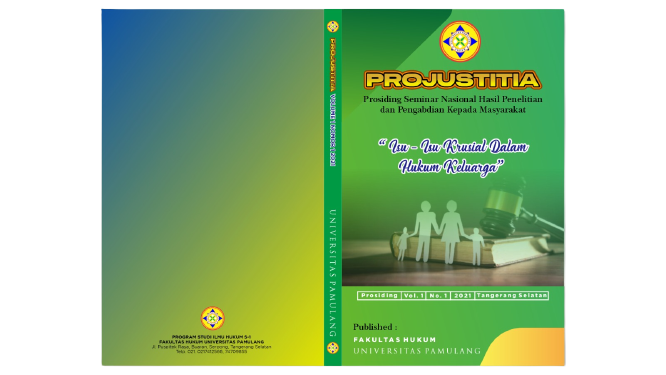KETERBUKAAN INFORMASI PUBLIK DALAM KONSEP PEMENUHAN HAK ASASI MANUSIA TERHADAP INFORMASI MENURUT UNDANG-UNDANG DASAR NEGARA REPUBLIK INDONESIA 1945
Abstract
ABSTRAK
Dalam negara hukum yang demokratis, penyelenggaraan dan penyelenggaraan negara didasarkan pada prinsip transparansi dan akuntabilitas dalam penyelenggaraan pemerintahan sebagai bentuk pertanggungjawaban pemerintah kepada pihak-pihak yang diperintahnya. Dengan demikian, konsekuensi logisnya adalah ketika suatu negara yang berdiri di atas tanggung jawab rakyat terbuka dan bertanggung jawab kepada rakyatnya melalui informasi publik, maka hak atas informasi publik merupakan hak dasar yang ditetapkan oleh konstitusi sebagai kontrak sosial antara negara dan masyarakat. Keterbukaan informasi publik yang membuka ruang bagi publik untuk berpartisipasi dalam penyelenggaraan pemerintahan merupakan salah satu pilar kebebasan berekspresi, pilar demokrasi, transparansi, dan pemerintahan yang baik. Oleh karena itu, dalam reformasi konstitusi Indonesia, hak masyarakat untuk memperoleh informasi secara terbuka dan jujur sebagai bentuk pelayanan publik dari lembaga negara dan lembaga pemerintah telah ditetapkan karena pemenuhan hak warga negara atas informasi publik merupakan tanggung jawab. negara melalui pemerintah. sebagai bentuk pertanggungjawaban pemerintah kepada rakyat atas kinerjanya sebagai bentuk tegaknya prinsip-prinsip Good Governance. Dengan semangat tersebut, lahirlah Undang-Undang Nomor 14 Tahun 2008 tentang Keterbukaan Informasi (selanjutnya disebut UU KIP) sebagai salah satu reformasi yang ditandai dengan tata pemerintahan yang baik untuk menjamin akuntabilitas, transparansi, dan partisipasi publik dalam prosesnya.
Kata Kunci: Hak Asasi Manusia, Informasi Publik, Kebebasan
ABSTRACT
In a democratic state of law, the management and administration of the state is based on the principles of transparency and accountability in government as a form of government accountability to the parties it governs. Thus, the logical consequence is that when a country that stands on the responsibility of the people is open and accountable to its people through public information, the right to public information is a basic right stipulated by the constitution as a social contract between the state and society. Disclosure of public information that opens up space for the public to participate in the administration of government is one of the pillars of freedom of expression, a pillar of democracy, transparency, and good governance. Therefore, in the reform of the Indonesian constitution, the right of the community to obtain information openly and honestly as a form of public service from state institutions and government agencies has been established because the fulfillment of citizens' rights to public information is a responsibility. state through the government. as a form of government accountability to the people for its performance as a form of upholding the principles of Good Governance. With this spirit, Law Number 14 of 2008 concerning Information Disclosure (hereinafter referred to as UU KIP) was born as one of the reformations marked by good governance to ensure accountability, transparency, and public participation in the process. the formation of public policies as well as a means of controlling good governance.
Keywords: Human Rights, Public Information, Freedom


